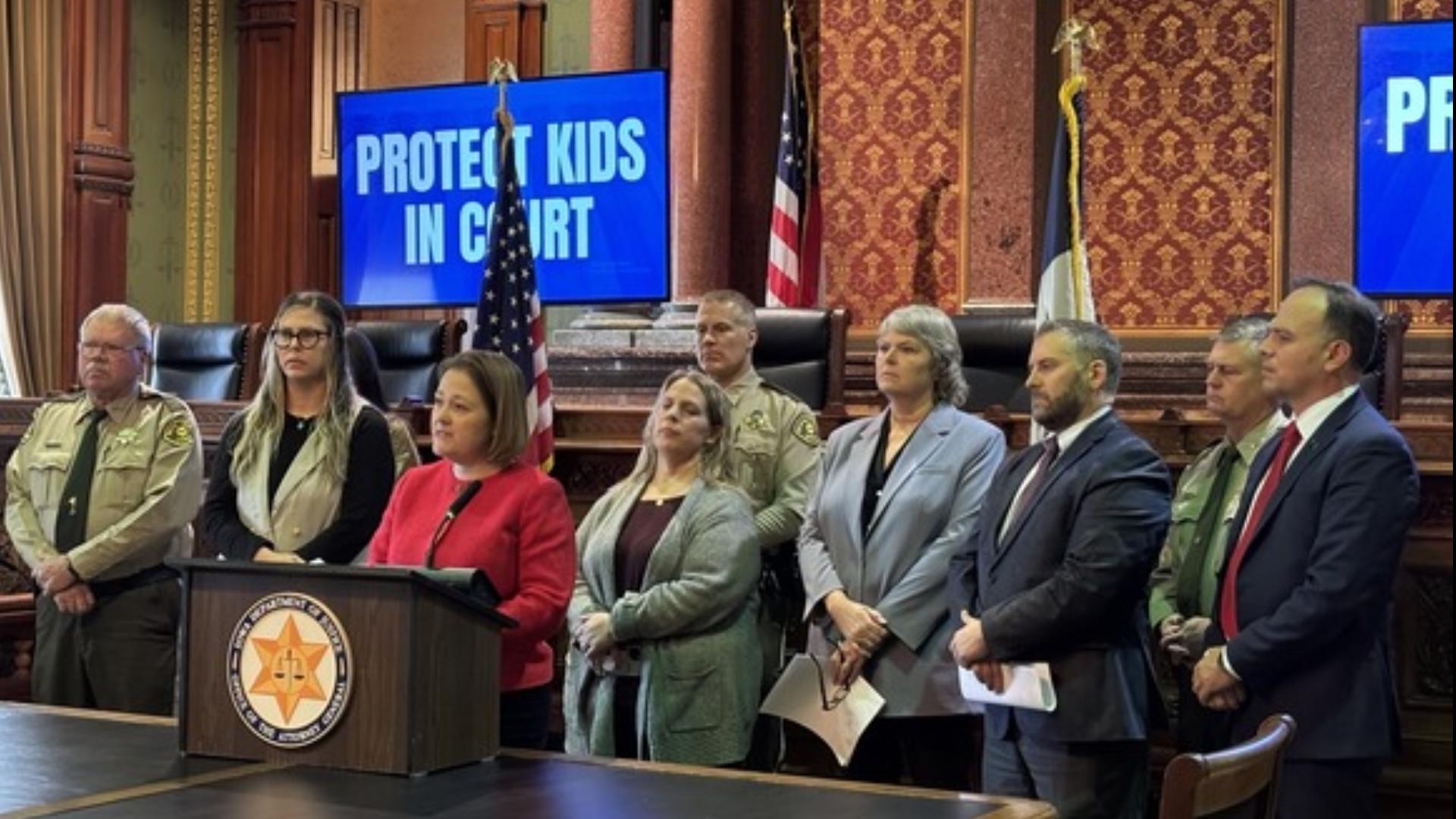DES MOINES, Iowa — Thursday, Iowa Attorney General Brenna Bird released a plan to push for a state constitutional amendment to allow children and individuals with disabilities to testify via closed-circuit video.
Out of all 50 states in the United States, Iowa is the only one that does not offer closed-circuit testimony for kids and adults with disabilities.
Several officials are joining Bird's cause, including attorneys who represent children who have been abused or sexually assaulted, child therapists and victims.
Brittany Souder spoke about her experience being subpoenaed to testify against a man who sex trafficked her at the age of 15. She said if she was given the option of a closed-circuit testimony the outcome of her case could have gone differently.
"The same fear that he instilled in me to keep me silent while he was trafficking me, kept me from sharing my story in court. I was 17 at the time, and I cannot imagine how much more terrifying that would have been if I had been even younger or in a more fragile mental state," Souder said.
Souder went on to state that forcing young victims to confront their abuser face-to-face in a courtroom adds another layer of suffering and re-traumatization, a reality child therapist Kate Haberman has seen in her practice.
"Because of how trauma affects the brain and body, it is likely their bodies and minds will freeze out of fear, and their ability to access their logic and their memory will be limited. This will hinder their ability to offer their testimony, resulting in the possibility of the abuser going free," Haberman said.
Lynn County Attorney Nick Maybanks said he's seen children go through this trauma, speaking on a case where he represented a young girl whose father was sexually abusing her. He shared that after she testified in front her father and a court full of strangers, her mental health severely declined.
"She was hospitalized numerous times during the pendency of the prosecution for suicidal thoughts and self harming. She was in counseling, but she couldn't even talk to her counselor fully about what happened to her," Maybanks said.
The proposed amendment will be brought before the state legislature during their session which begins Jan. 13. To become part of the state constitution, it will need to pass two sessions of legislature before going to a general election ballot vote as early as 2028.

